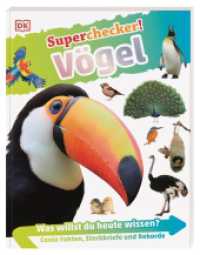- ホーム
- > 洋書
- > ドイツ書
- > Humanities, Arts & Music
- > Linguistics
- > general surveys & lexicons
Full Description
Thus, is a population shifting to a dominant language necessarily abandoning its traditional culture ipso facto or is it also reshaping it along with that associated with the new language into a new, mixed culture?







